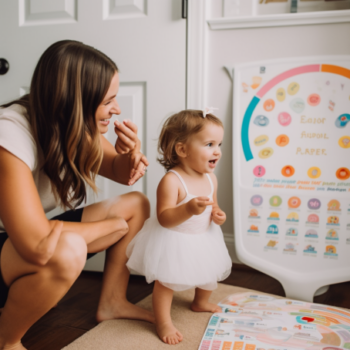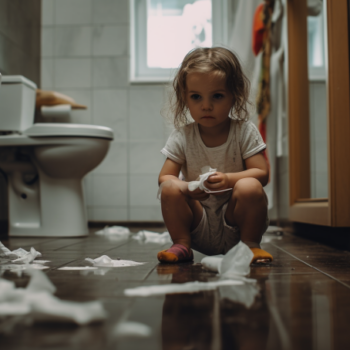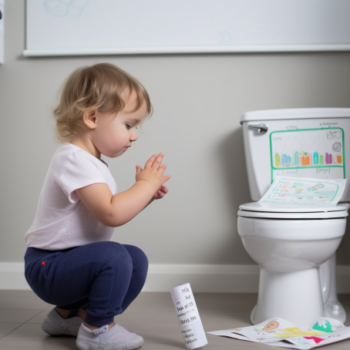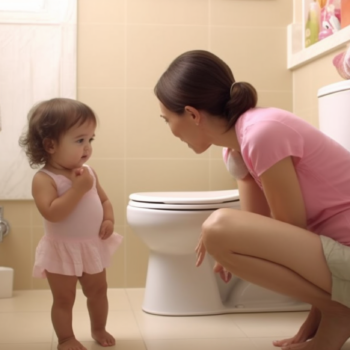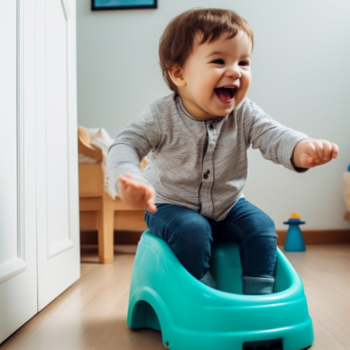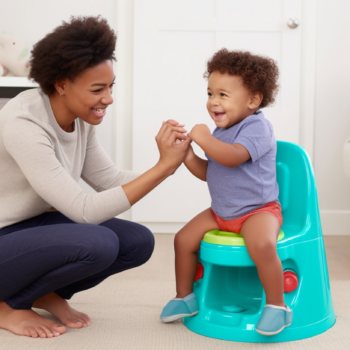Teaching a child to use the potty can be a challenging task for many parents. However, with the right approach and patience, it can be a seamless process. To encourage your child to use the potty, start by introducing them to the concept and providing them with the necessary equipment. It's essential to establish a routine and set realistic expectations, while also rewarding and praising your child for their efforts. Remember, every child is different, and it may take some time for them to get the hang of it. Be consistent, positive, and patient, and eventually, your child will learn to use the potty on their own.
Category: Potty training
Expert Tips for Dealing with Potty Training Accidents Like a Pro
Potty training can be a stressful time for both parents and children. Accidents are inevitable, but it's important to handle them correctly to avoid setbacks. First, stay calm and reassure your child that accidents happen. Clean up the mess quickly and thoroughly to avoid lingering odors. Encourage your child to help with the clean-up process to reinforce the importance of using the potty. Consider using waterproof training pants or a mattress protector to avoid messes during sleep. And most importantly, be patient and consistent in your potty training approach. With time and perseverance, accidents will become less frequent and your child will be on their way to successful potty training.
Potty Training Timeline: How Long Does It Take to Successfully Train a Child?
Potty training is a significant milestone for both parents and children. However, the duration of the process varies for different children. Some may take a few days, while others may need several months or even longer. Factors such as age, temperament, and readiness play a crucial role in determining how long it takes to potty train a child. Nevertheless, it is important to be patient and consistent in the process, as pushing a child too hard or rushing them can lead to regression. With the right approach, encouragement, and rewards, most children can successfully transition from diapers to using the toilet in due time.
A Comprehensive Guide to Determine Your Child’s Potty Training Readiness
Potty training is an important milestone in a child's development, but it can be challenging for both the child and parent. It's important to know if your child is ready before starting the process. Some signs that your child may be ready include showing interest in the potty, being able to stay dry for a few hours, and being able to communicate their needs effectively. It's important to be patient and positive during the process, as every child is different and may take longer to master this skill. By following your child's cues and providing plenty of encouragement and support, you can help them successfully navigate this important stage in their development.
When to Begin Potty Training: A Parent’s Guide to Knowing the Perfect Age
Potty training can be a daunting task for parents, but it's an important milestone for your child's development. The question of what age to start potty training is common among parents, and the answer may vary based on your child's readiness. However, experts suggest that children can start potty training as early as 18 months old. It's important to look for signs of readiness, such as showing an interest in using the toilet and pulling down their own pants. Starting the process early can also prevent regression and make the transition smoother. Remember, every child is different, and there's no one-size-fits-all approach to potty training. Just be patient, consistent, and positive throughout the journey.
A Beginner’s Guide to Potty Training Your Child: Tips and Tricks to Get Started
Potty training can be a daunting task for many parents, but the key is to start at the right time and with the right approach. The first step is to make sure your child is ready and showing signs of readiness, such as staying dry for longer periods and showing interest in the toilet. Once you've established readiness, it's important to create a positive and consistent routine, with plenty of praise and rewards for your child's successes. Additionally, providing your child with the right tools, such as a child-sized potty and special underwear, can also make a big difference. Remember to be patient and persistent, and celebrate each step forward in the potty training process. With the right approach and a lot of encouragement, your child will soon be on their way to becoming toilet trained.

